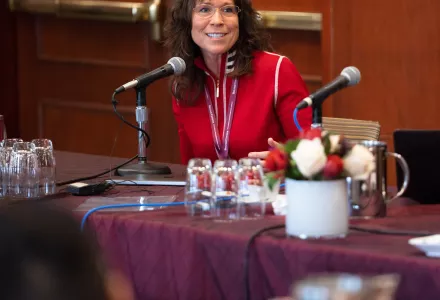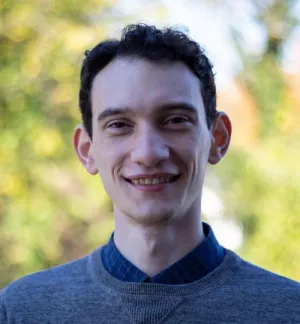
In early May, 70 scholars and practitioners gathered for the Applied History Network Meeting at Harvard Kennedy School, hosted by the Belfer Center’s Applied History Project, Stanford’s Hoover Institution, and the Axel and Margaret Ax:son Johnson Foundation. The meeting brought together leading historians, political scientists, economists, and policymakers from more than 10 major institutions across the U.S. and Europe to examine key issues in international affairs through the lens of Applied History: the explicit attempt to illuminate current choices and challenges by analyzing the historical record, particularly precedents and analogues.
The Network Meeting highlighted applied history’s usefulness for grappling with difficult problems across multiple regions and subjects. Thirty panelists and chairs presented at seven sessions, covering China, Russia, the Middle East, economics, World War I, decision- making, and grand strategy. Discussion spanned such topics as the history of election meddling, patterns in return on capital since the 14th century, trends in Chinese regime stability, and methods for digitizing and analyzing millions of historical documents.
The meeting also showcased the field’s bright future: of the 30 speakers, 13 were emerging scholars representing a talented new generation of applied historians.
More than simply demonstrating the practice of applying history to current choices and challenges, participants also explored actionable ways to improve the use of history in government—and avoid its abuse. Belfer Center Director and former Secretary of Defense Ash Carter led a brainstorming session on strategies for institutionalizing historical learning, moderated by Harvard Kennedy School’s Douglas Dillon Professor of Government and Applied History Project Co-Director Graham Allison. Participants considered various types of advisory committees, checklists, and briefing papers that could help decision-makers learn from history efficiently and effectively. Former World Bank president Robert Zoellick furthered this conversation as chair of the panel on Applied History in Government.
A milestone for applied history, the Network Meeting demonstrated the power of harnessing the historical record to understand current issues, as well as the appetite of scholars and practitioners alike for a deeper connection between history and policy.
As Carter put it: “The dominant mental methodology of real policymakers is historical reasoning.”
*****
Walton to Edit History of Espionage and Intelligence
Calder Walton, Assistant Director of the Applied History Project and Ernest May Fellow in History and Policy with the Belfer Center’s International Security Program, has been named general editor of The Cambridge History of Espionage and Intelligence, to be published by Cambridge University Press in 2022.
The three-volume work will document for the first time the extensive record of how undercover information-gathering has been used and misused in conflicts from the ancient world through the cyberwarfare of the present.
In an interview with the Harvard Gazette earlier this year, Walton said the aim of the completed project is to “look at this whole enormous tapestry of history” and answer the question, “What difference can we say intelligence has made to statecraft and warfare?”
He hopes the work will help make HKS into a world-leading center for the study of intelligence history and help us understand—through the lens of history—what’s going on today.
For more on the Applied History Project, see here.
"Scholars Examine Current Choices and Challenges Through the Lens of History." Belfer Center Newsletter, Belfer Center for Science and International Affairs, Harvard Kennedy School (Summer 2019).




